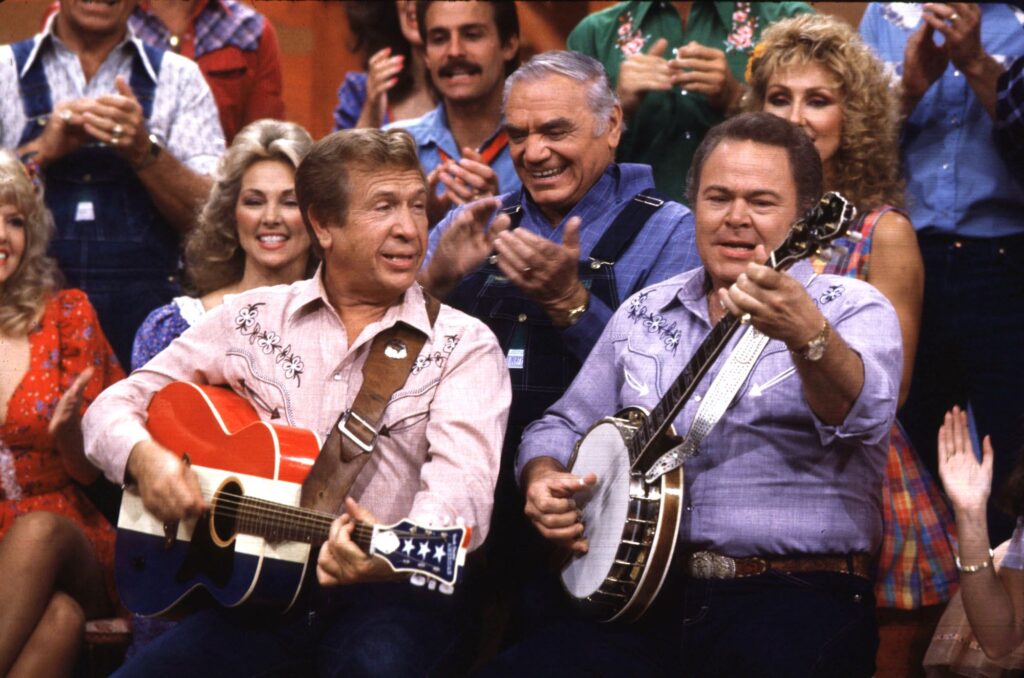
A Working Man’s Anthem to Simple Pleasures and Unshakable Belonging
Released in 1973, “Rednecks, White Socks and Blue Ribbon Beer” is a poignant tableau of blue-collar Americana, made indelible by the warm, lived-in voice of Buck Owens. Issued on the album “The Best of Buck Owens, Vol. 6,” the song quickly resonated with listeners across the country, climbing to No. 4 on the Billboard Hot Country Singles chart. Though Owens himself was not the original writer—credit goes to Bob McDill, Chuck Neese, and Johnny Russell, who recorded his own version—the track became one of Owens’ late-career triumphs, a moment where his Bakersfield twang met the weary soul of working-class America.
By 1973, Buck Owens had already carved a place for himself as one of the titans of country music. He had pioneered the Bakersfield Sound—a raw, electric counterpoint to Nashville’s polish—and helped define an era with hits like “Act Naturally” and “Together Again.” Yet “Rednecks, White Socks and Blue Ribbon Beer” signaled a shift—not in sound so much as in sentiment. The rowdy optimism of Owens’ earlier catalog gave way here to something slower, more meditative. This wasn’t honky-tonk for the sake of revelry; it was honky-tonk as sanctuary.
At its heart, the song is a portrait—gentle and unvarnished—of a small-town barroom where social labels dissolve under the neon glow and clinking bottles. “There’s no place that I’d rather be than right here / With my rednecks, white socks and Blue Ribbon beer,” sings Owens with quiet conviction. The lyrics are deceptively simple, sketching out an atmosphere thick with cigarette smoke, faded jukebox songs, and shared weariness. But within that simplicity lies its genius: it captures not just a scene but a mood—the aching comfort of being among your own kind, away from judgment or pretense.
The song does not mock its characters; it honors them. In an era when America was still reeling from Vietnam and convulsing with cultural change, “Rednecks, White Socks and Blue Ribbon Beer” offered something steady—a hymn to resilience through routine. It immortalized a kind of camaraderie found in dimly lit watering holes where strangers become kin through shared silence and familiar tunes.
Musically, the song moves with a slow shuffle that complements its themes of tired contentment. The pedal steel sighs like a weary old friend while Owens’ vocal delivery avoids dramatics—he sounds less like he’s performing and more like he’s remembering. It’s this emotional honesty that grants the song its longevity.
In today’s fractured cultural landscape, “Rednecks, White Socks and Blue Ribbon Beer” endures as more than a nostalgia piece—it’s an elegy for a fading way of life, but also a tribute to the spaces where ordinary people have always gathered to find solace in one another. Through Owens’ voice and McDill’s words, it becomes clear: dignity often resides not in grand declarations but in quiet fellowship—and maybe in one more round of beer shared among those who know your name without asking.